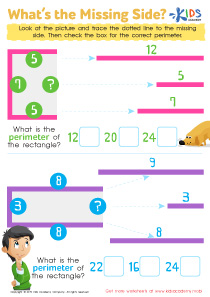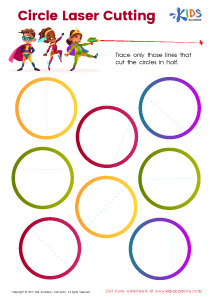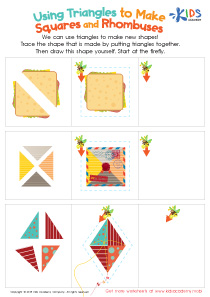Problem-Solving Skills Normal 2D Shapes Worksheets for Ages 3-6
5 filtered results
-
From - To
Enhance your child's problem-solving abilities with our engaging Normal 2D Shapes Worksheets, specifically designed for ages 3-6. These interactive and fun worksheets encourage young learners to explore basic geometry concepts while developing critical thinking skills. By identifying, coloring, and manipulating various 2D shapes such as circles, squares, and triangles, children will improve their spatial awareness and enhance their analytical skills. Each activity is crafted to promote creativity and foster a love for learning. Whether at home or in the classroom, these worksheets provide an enjoyable way to lay a strong foundation in math and problem-solving for your little one!
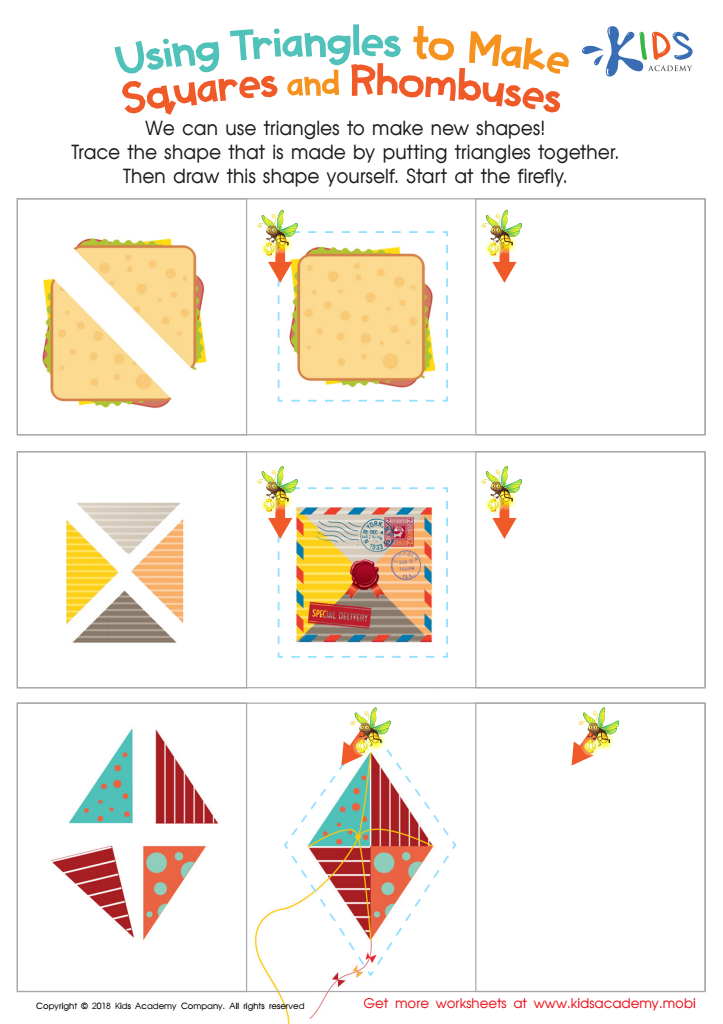

Using Triangles to Make Squares and Rhombuses Worksheet


Make the Same Pattern Worksheet
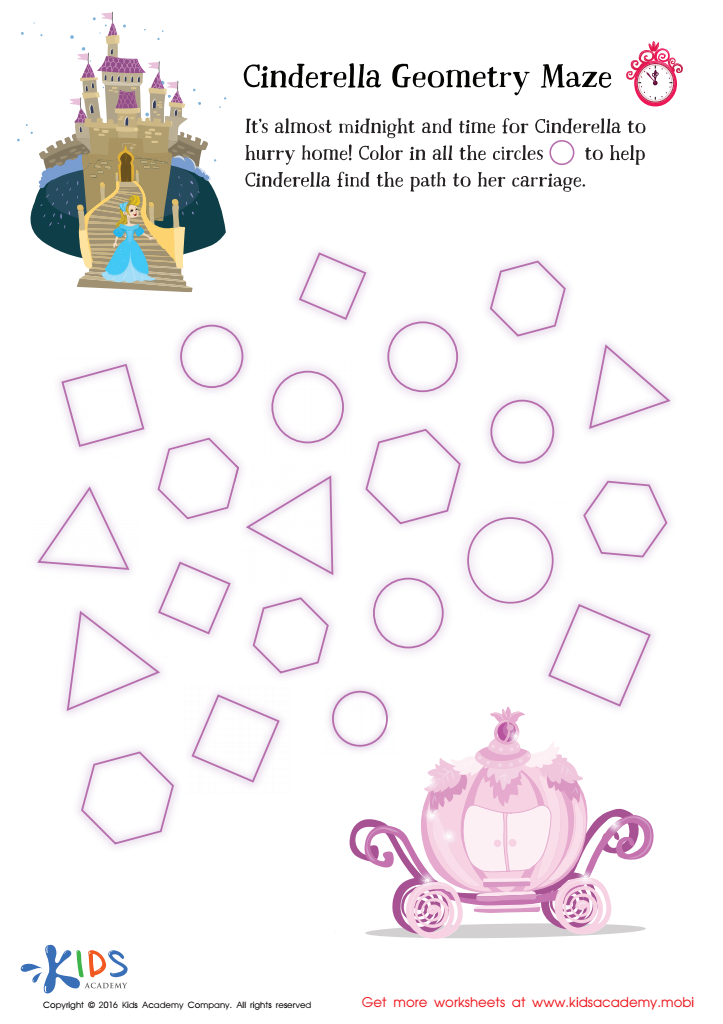

Cinderella Geometry Maze Worksheet
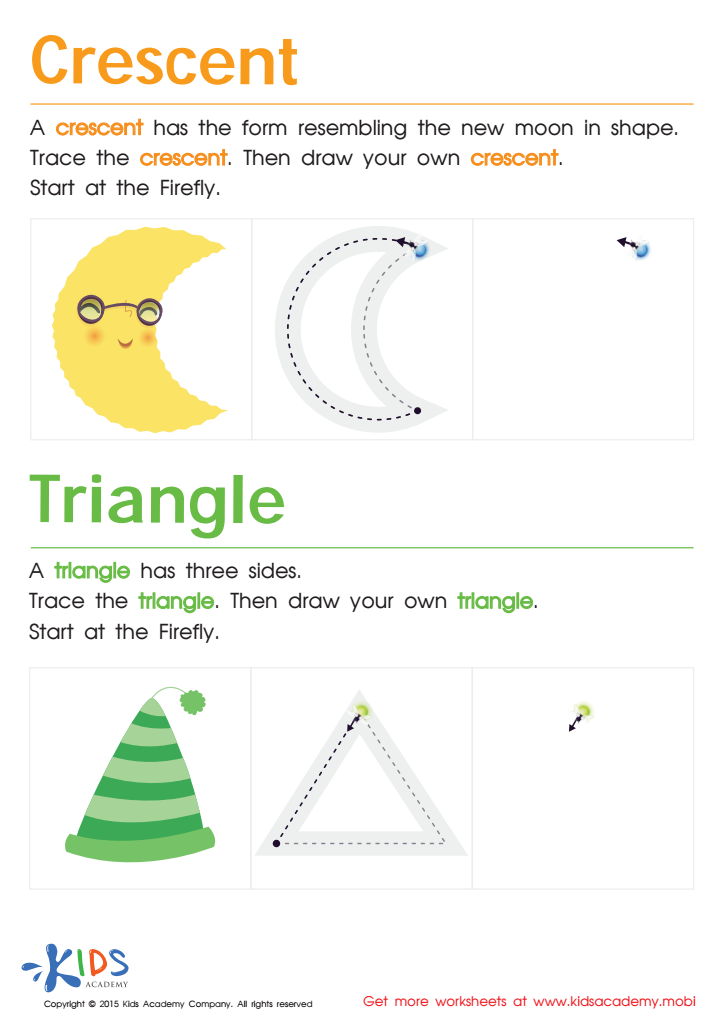

Learning to Draw Crescents And Triangles Worksheet
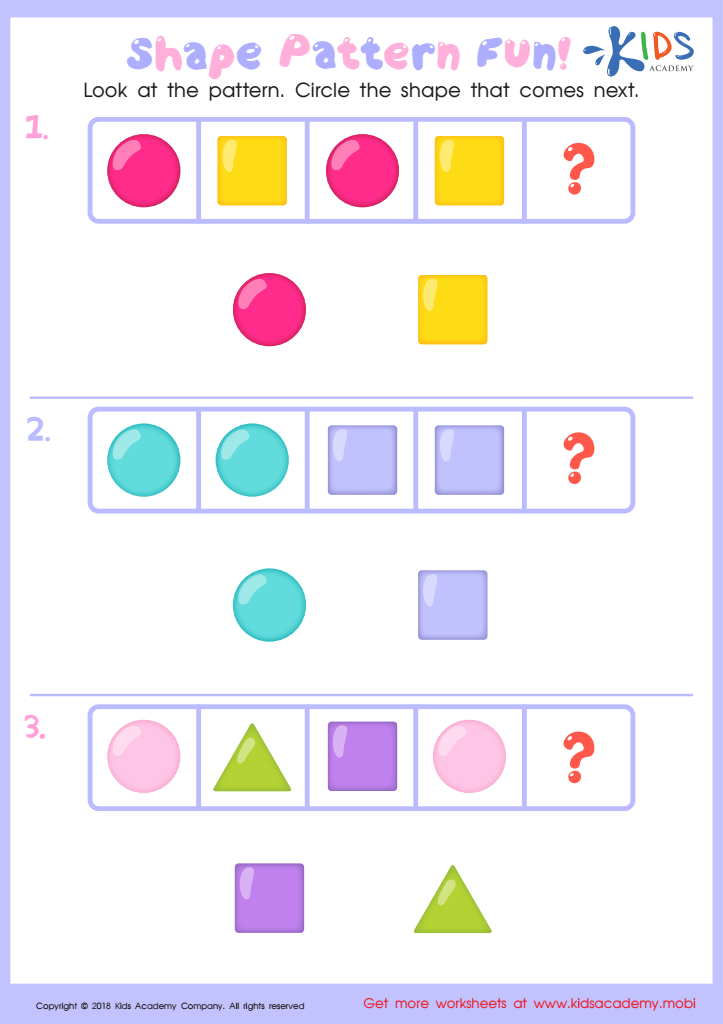

Shape Pattern Fun Worksheet
Parents and teachers should prioritize the development of problem-solving skills in young children, particularly when exploring normal 2D shapes, for several compelling reasons. First, understanding shapes is foundational to math and spatial awareness, which are crucial for future learning. Engaging in shape-related problem-solving activities fosters critical thinking, enabling children to approach challenges with creativity and persistence.
Moreover, learning about shapes in a hands-on, problem-solving context cultivates not just cognitive abilities but also social skills. Activities that involve teamwork, such as building with blocks or tracing shapes, encourage cooperation and communication. Children learn to express their ideas, listen to others, and negotiate problems together.
Additionally, developing problem-solving skills through 2D shapes enhances fine motor skills and hand-eye coordination, especially as children manipulate tools like scissors or drawing instruments. This early engagement enriches their overall developmental experience, laying a strong foundation for academic success.
Finally, nurturing problem-solving capabilities instills a sense of confidence and independence in young learners. As they work through shape-based challenges, they develop a mindset that values effort and resilience, essential traits for lifelong learning. Therefore, committed involvement from parents and teachers in fostering these skills is essential for holistic child development.
 Assign to My Students
Assign to My Students














